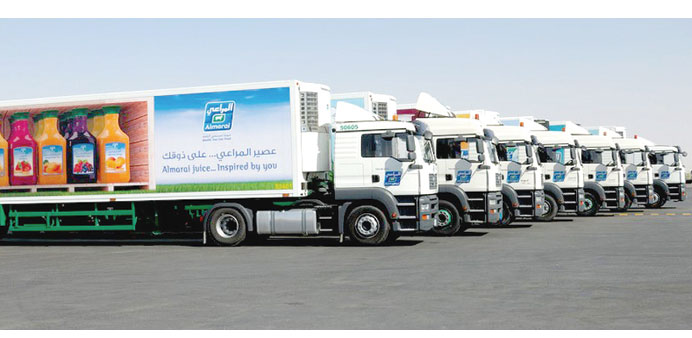Saudi Arabian banks are climbing the rankings in arranging Gulf Islamic bond deals this year, profiting from a growing pipeline of domestic debt sales.
Four of the top 10 banks helping issue sukuk from the Gulf Co-operation Council are from Saudi Arabia, poised for their strongest showing on record, according to data compiled by Bloomberg. NCB Capital Co ranks second to HSBC Holdings after arranging $2.4bn in sales. Last year, Banque Saudi Fransi was the only lender from the kingdom to make the top 10, in ninth position.
Saudi banks are climbing the list as 68% of sukuk sales in the six-nation GCC this year have been from the kingdom, up from 43% in all of 2012.
Islamic bond sales slowed elsewhere in the region as concern the US Federal Reserve would taper bond-buying sent yields climbing.
“Local banks have the balance sheet to support such underwritings in contrast to investment banks which have in most cases limited profit-and-loss and balance-sheet support,” John Sfakianakis, chief investment strategist at Masic in Saudi Arabia, said by e-mail on October 6. “Banks find it opportune now to be underwriters given the size of these offerings and the timing.”
The General Authority of Civil Aviation, the government-owned airport developer known as Gaca, foodmaker Almarai Co and construction company Saudi Binladin Group have sold Islamic bonds this year. Albilad Investment Co, Alinma Bank and Riyad Bank share the ninth ranking after handling $500mn of sukuk sales each, the data show.
Gaca raised 15.2bn riyals ($4.1bn) last month, the second-largest sukuk of more than 1,800 tracked by Bloomberg globally, with a profit rate of 3.21%.
“The banks are being sidelined” in the last six months amid a shift away from loans toward bonds, Asim Bukhtiar, senior analyst at Riyad Capital, said by phone last Monday. “To get back into the game you are seeing the local banks participating more and underwriting these types of deals.”
Of the 21 sales in the region this year, the top 10 managers were mandated 47 times. Of those mandates 20 came from Saudi borrowers. HSBC has helped clients raise $4.8bn from sukuk sales in the region, with its Saudi unit accounting for $3.2bn.
Average GCC sukuk yields fell 15 basis points after the Fed said on September 18 it would delay a reduction in its asset-purchase programme, prompting borrowers to announce deals that could help lenders outside the kingdom overtake Saudi banks in the ranking.
Abu Dhabi’s Al Hilal Bank sold $500mn of notes on October 1. Three of the four Saudi banks slid down the ranking as Ras Al Khaimah, a member of the UAE, completed its $500mn sale this week.
The advance of Saudi banks may also be threatened when investment banks in the country enhance their solvency and capital adequacy, according to Mohamed al-Omran, president of the Gulf Centre for Financial Consultancy in Riyadh.
“Commercial banks will play this role temporarily until investment banks are on solid ground and they have balance sheets able to underwrite such big ticket transactions,” he said by phone last Monday.
The kingdom’s economy, the largest in the six-nation GCC, has grown an average 7.6% in the three years to 2012 as the government increased spending. Saudi Arabia is rated AA- and Aa3 at Standard & Poor’s and Moody’s Investors Service, their fourth-highest investment grade ranking.
Riyadh-based Saudi Hollandi Bank’s board approved a private offering of riyal-denominated sukuk to support its capital base, according to a September 26 statement on the kingdom’s stock exchange. Saudi British Bank plans to sell Islamic bonds by the end of the year, Reuters reported on August 26, while Meed reported on September 24 Saudi Electricity hired banks for a sale.
“You will probably see Saudi banks getting more involved in these issues,” Murad Ansari, a Riyadh-based analyst at EFG- Hermes, said by phone. “With underwriting the banks get fees. There is high demand for high-quality debt paper as well, given that there has been limited supply.”

